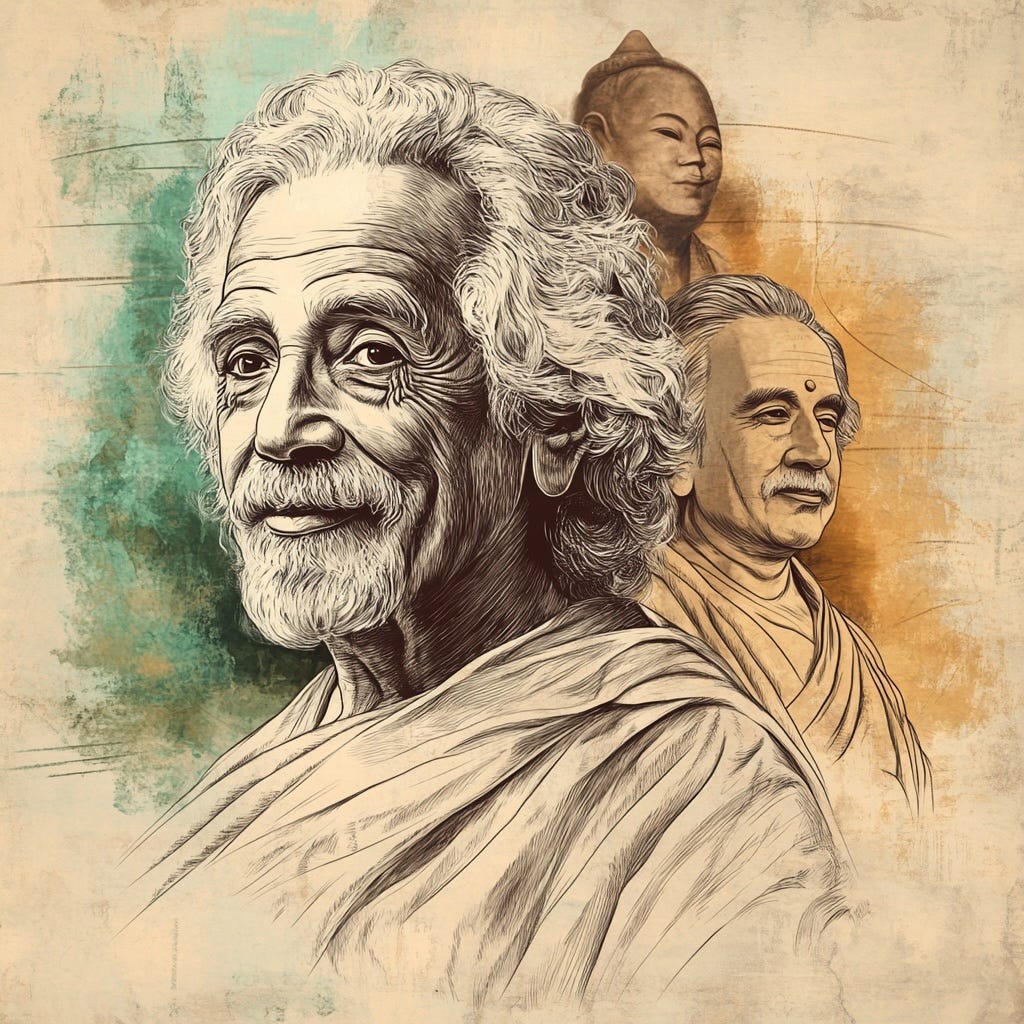The Miracle of the Unexplainable
Albert Einstein once remarked, "There are only two ways to live your life: one is as though nothing is a miracle, the other is as though everything is a miracle."
At the heart of this statement lies a contradiction that shapes the way we experience reality. The rational mind, honed by science and logic, tells us that the world is a product of randomness. An intricate web of cause and effect, probabilities, and emergent complexity. And yet, when we step back, life itself feels miraculous. A chance encounter alters the trajectory of our existence. A coincidence defies all logic. A seemingly impossible event unfolds with a precision that leaves us in awe.
Which lens should we trust? The one that sees chaos or the one that perceives miracles?
Randomness is a Law of Nature
As a student of science, I have long been drawn to the principles of probability. The universe is governed by randomness. Molecular movements, genetic mutations, economic fluctuations, and even our personal encounters. If a single ancestor in my lineage had made a different choice, you would not be reading this essay today. If the weather had been different on one particular day, an entire sequence of events may have unfolded differently.
And yet, within that randomness, we find structure. The Fibonacci sequence appears in nature. The sun rises with impeccable precision. Snowflakes, despite their uniqueness, share a symmetrical pattern. A mathematician might argue that miracles are simply statistically rare occurrences we assign meaning to.
But can that truly explain the deep sense of wonder we experience?
Spiritual Pull to Find Meaning in Chaos
The alternative view, the one Einstein suggests when he invites us to live as though everything is a miracle, resonates deeply, even in a hyper-rational world. Some moments defy rationality. Why do we meet certain people at precisely the right time? Why do stories of near-impossible synchronicities abound in human history?
I recall a moment from my own life that still leaves me wondering. Years ago, while traveling, I found myself stranded in a foreign city with no contacts, no place to stay, and no clear plan. By sheer chance (or was it something more), I ran into an old school friend I hadn’t met or spoken to in years. He, too, was just passing through and was more than willing to help. The odds of that meeting were infinitesimal. Rationality would call it chance, but I felt something greater at play.
Then there was the time during the peak of the pandemic when my small consulting business was on the brink of collapse. Resources were exhausted, and I had no idea how to sustain operations any longer. Just when I was about to give up, a long-forgotten client reached out with a project big enough to carry us through. It felt like an answer to an unspoken prayer.
Another instance: a friend who struggled for years with infertility, exhausting every medical option, suddenly conceived naturally just as she was preparing to give up and embrace a different path. The doctors called it unexplained. She called it a miracle.
Or consider the driver who narrowly avoids an accident by a fraction of a second, a delay at a red light, an unexpected detour, and later discovers that a fatal collision had occurred just moments ahead. Was it just randomness? Or was it something else entirely?
And what about those times when a simple act of kindness, a stranger offering help, a friend calling at just the right time, changes the entire course of someone's day, even their life? We brush it off as chance, but in hindsight, those moments feel almost orchestrated.
Science, Spirituality, and the Changing Mind
For eight years, I was immersed in the deep study of Buddhist and Vedic traditions, drawn to their explanations of karma, dharma, and interconnectedness. These teachings spoke of unseen forces shaping our destinies, offering meaning to every event. I found peace in their logic, a structured way to interpret the chaos of life.
Karma, in particular, seemed irrefutable. A law as certain as gravity.
And yet, in recent times, I have found myself pulled in the opposite direction. The world no longer appears to be an intricate play of past deeds and cosmic justice but a landscape of sheer randomness where meaning is something we impose rather than something inherently present. Perhaps karma is not an objective truth but a rational assumption. A framework humans have devised to cope with uncertainty.
This shift in m y thinking unsettles me. Is spirituality just an elaborate story we tell ourselves to make sense of an unpredictable universe? If we let go of these stories, does life become empty, or do we become truly free?
Living with Both Eyes Open
The beauty of Einstein’s paradox is that it invites us to hold both perspectives simultaneously. We can recognize that randomness is real. That the universe is filled with chaos, but within that chaos, we can still find purpose. That while we may never fully grasp the forces at work, we can choose how we interpret them.
Maybe miracles are simply moments when randomness and meaning intersect. Maybe faith and reason are not enemies, but, rather partners in making sense of the unexplainable.
As I reflect on life’s most inexplicable twists, I choose to lean into wonder. Whether by design or chance, we are here.
And that, in itself, is a miracle worth marveling at.
I’d like to see more of us pay witness to the lives and miracles all around us. They are hiding in plain sight.
And remember to always assume positive intent.
With awe and curiosity,
Adi





